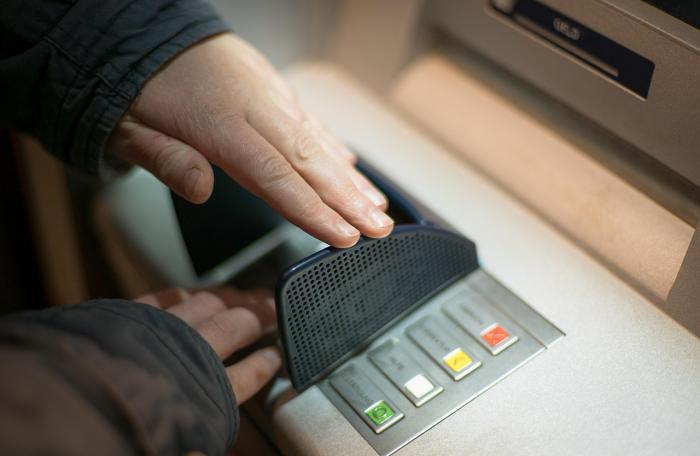Scams are a dime a dozen these days, even in Taiwan. There are investment scams, dating scams, and more recently, scams involving artificial intelligence (AI) technology. If you’re not careful, you could get victimized by unscrupulous groups and scammers!
In this article, we have compiled a list of the most common scams affecting workers and the general public. By being aware of these scams and how they operate, we all have a better chance of avoiding them and reporting suspicious activities to the authorities!

Spot and Avoid These Scams Targeting Migrant Workers
Over the years, the Workforce Development Agency (WDA)
Ministry of Labor (h2) has looked out for the safety and well-being of all workers in the country. This includes sharing advisories and warnings about scams and other illegal activities.
Here is a list of the most common scams that target workers in Taiwan, based on the WDA’s official website:
Recruitment Scam
We’ve all encountered recruitment scams, or those that feature “easy work, high pay” jobs that sound too good to be true. When you contact these scammers, under the pretext of “hiring” you they will ask for your personal information, such as your passport, Alien Residence Card (ARC), bank account details, and so on. They may even ask to meet you in private instead of an office… assuming that they have an actual, legitimate office (which is unlikely)!
Be wary of jobs that offer high salaries and benefits in exchange for easy, part-time, or temporary work. Also, if you are planning to change jobs or transfer to a new employer, be sure to go through the proper channels to avoid legal issues!
Lucky Winner Scam
You might have received a text or email that says, “Congratulations, you’ve just won a prize.” It then asks you to click a link or contact a number to claim your prize. And when you do, you get asked to pay a processing fee. That’s a big red flag right there. Why would you have to pay a fee for claiming a prize that you supposedly won?!
Many scammers pretend to be a popular brand or show, sending messages to “lucky winners” with the aim of getting money from them. Once they receive the money, they disappear, and you are left hanging without any prize… and your money lost!
Beware of texts or email messages announcing that you’ve won a prize for a raffle draw, especially if it’s a draw that you don’t even recall entering! Don’t entertain these messages, and more importantly, don’t give away your personal details and your money!
Shopping Scam
Online shopping is common these days, and so are online shopping scams! Scammers will send you a message saying that there’s an irregularity in your transaction, a problem with delivery, and so on. They will try to trick you into sharing your personal details and banking information with them, before stealing your money!
To prevent these types of scams, be sure to use only official shopping platforms. Avoid buying from social media accounts, especially those that are not “verified.” What’s more, look for legitimate reviews or recommendations from other customers before making any purchases.
Underground Money Transfer Scam
As migrant workers, we usually send remittances to our families back home. Be sure to send money only through banks or legitimate remittance companies. Avoid sending remittances through persons or groups that promise “zero/low transaction fees.”
Keep in mind that Taiwan’s Banking Act (Article 29) states that other than banks, any person who is found handling foreign remittances could face a fine of TWD 10 million – TWD 200 million, and also three to 10 years imprisonment!
Investment Scam
There’s been an increase in investment scams lately, with scammers using names of celebrities as “official endorsers.” They promise huge returns for minimal investment, enticing you with a little profit in the beginning, convincing you to invest more. But when you try to withdraw your investment and profits, they make a lot of excuses before disappearing!
Don’t be fooled by investment scams that promise huge profits for small investment. What’s more, don’t share your personal data since they can always use it against you!
Catfishing or Dating Scam
Have you heard of catfishing? It’s when you get tricked into falling in love or having a romantic relationship with a person who is pretending to be someone else. Using pictures of attractive men and women, scammers start an online relationship with you. Everything seems to be going well… that is until they start asking for money habitually.
To avoid getting “catfished,” one strategy is to use the “reverse image search” function on online search engines. Do this on the picture of your “lover,” and the results will show the original source of the picture. You are likely to find that the image was stolen, and the person you’ve been talking to has been pretending all along!
Labor Insurance Scam
Lately, labor insurance scams have been on the rise. Here’s how it goes: You receive a call from someone who is pretending to be from the Bureau of Labor Insurance (BLI). He/She says that your personal information or account has been stolen, and asks you to contact a police officer… who is actually their accomplice. They ask you to provide your account details, and before you know it, they’ve stolen your personal details and your money, too!
Official representatives and communication channels of government agencies like the BLI will never ask for your personal information. Keep that in mind to avoid this type of scam!
Health Insurance Scam
Aside from labor insurance, health insurance scams have been on the rise, too. It usually starts with a text or email from scammers pretending to be from the National Health Insurance Administration (NHIA). They tell you that there’s been a case of “mistaken deduction” or other similar concerns in your account. They then share a link where you’re supposed to give your personal details so that they can help you resolve the problem.
The NHIA or other government agencies would never send you a personal text or email. They have official addresses and numbers that you can contact for any concerns. If you receive suspicious messages from the “NHIA,” ignore it or report it to the authorities.
AI Scam
Although artificial intelligence (AI) technology has many uses, scammers have also been using it for illegal purposes. From using AI-generated images and videos, to using computer voices that seem “real,” these scammers utilize AI technology to steal personal information and get money from hardworking employees.
To avoid becoming a victim, be sure to keep up with AI technology and know the latest trends. Keep in mind that not everything you hear and see may be real, and always check and verify with official channels before making any transactions.
Screen Sharing Scam
Nowadays, it is possible to “screen share” your phone with TV monitors and other devices. Unfortunately, scammers have also been using this technology to steal personal information from unsuspecting victims. Usually, they pose as customer service personnel, telling you that there’s a problem with your account and asking you to “screen share” your phone so they can help you.
This is a scam. Always remember that companies and their official representatives would never call you and ask for your personal information. They have official contact numbers and service representatives for those with problems and concerns. Beware of “screen sharing” your phone and giving details to anyone!
Secondary Scams
Let us suppose that you lost money through an investment scam, insurance scam, or even a dating scam — and you are looking for a way to recover your lost money. You see an advertisement online from a “lawyer” or “financial expert,” claiming to be able to help people like you. And so you contact them, unaware that these so-called experts are actually scammers, too!
Basically, this is what we call a “secondary scam.” Before they provide any services, the scammers ask you to pay a fee or deposit first. After that, they disappear and you end up getting scammed… again.
To avoid becoming a victim, be sure not to trust every advertisement or message that you see online! Moreover, do not pay any fees or give away your personal information!
Scam Gang Money Mule
Have you heard of the term “money mule”? This is when scammers use other people’s bank account for their illegal purposes. Unsuspecting victims are persuaded to sell or provide their personal information and bank details… not knowing that these will be used to launder money or commit other criminal activities.
As a “money mule,” the victim becomes part of the crime itself. And based on the “Money Laundering Control Act,” money mules could serve one to seven years in prison and have their assets seized.
To avoid becoming a money mule, protect your personal details and bank account information at all times. Do not lend your passbook, ATM card, and account details to anyone else! And if you receive money from a suspicious or unknown source, inform the bank, the police, or other authorities about it.

By knowing the different types of scams and how they operate, you become more aware, vigilant, and capable of protecting yourself. If you have any questions and concerns, or if you think you are being scammed, do not hesitate to contact the police, call the 165 Anti-Fraud Hotline or the 1955 Foreign Workers Hotline.
Furthermore, check out this article to read about data protection laws in Taiwan, and to get some data privacy tips.
